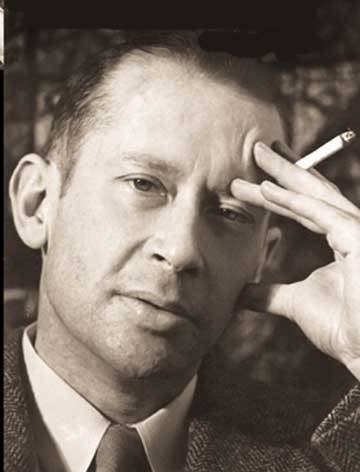 “So we beat on, boats against the current, borne back ceaselessly into the past.”
“So we beat on, boats against the current, borne back ceaselessly into the past.”
 Like most children, I enjoyed reading, but when it came to English classes in school I always resisted the assigned reading material and opted for a Choose Your Own Adventure book instead, which lead me to rely heavily on Cliff Notes to get by. My eighth grade English class came close to getting me interested in books with some literary value with assigning S.E. Hinton’s The Outsiders (which is still one of my favorites), but that was followed by Dicey’s Song by Cynthia Voigt and my distaste for required reading was renewed. It wasn’t until my sophomore year in high school when Mr.Krasnansky handed me a copy of The Great Gatsby that I gave required reading a chance and an interest in literature quickly developed. Not only did I fall in love with the story, its characters, its era, but with the ideas that were beneath all of Fitzgerald’s details and Nick Carraway’s narration. Writing became a legitimate art form to me after reading this book. I began to realize the power literature had to heighten the senses and our consciousness and lead us to question and to think beyond our daily and common practices as human beings. The style of Fitzgerald’s writing together with his social critique of the American Dream and high society strips down the characters’ rich identity in a way that reveals an unfulfilled human being in the endless search of attainment. His interpretation of modern society’s corruption and the devaluing the dream of the individual in favor of material and monetary wealth was a profound idea to an impressionable sophomore. I began to see my own green light above the horizon and became more aware of the threat of society’s imposition upon my values and hopes for the future. This was also my first encounter with Modernism and shortly after my reading of Fitzgerald I read an e.e. cummings poem and I immediately fell in love with poetry. “Somewhere I have never travelled, gladly beyond” left me speechless once I reached the final stanza, and as it was with Fitzgerald’s fiction, it was the language and style of Cummings that I responded to the most. His pastoral images of the struggles of love creates and emotional tension that as a love-sick teenager I immediately sympathized with, but beyond that, I had never before seen words capture so beautifully and intimately the uncertainties and certainties of human emotion. That poem’s level of writing and intimacy is what I hope to [someday] achieve in my own poetry. So here’s to you F.Scott and e.e.: if I hadn’t read your work, I’d probably be majoring in communications.
Like most children, I enjoyed reading, but when it came to English classes in school I always resisted the assigned reading material and opted for a Choose Your Own Adventure book instead, which lead me to rely heavily on Cliff Notes to get by. My eighth grade English class came close to getting me interested in books with some literary value with assigning S.E. Hinton’s The Outsiders (which is still one of my favorites), but that was followed by Dicey’s Song by Cynthia Voigt and my distaste for required reading was renewed. It wasn’t until my sophomore year in high school when Mr.Krasnansky handed me a copy of The Great Gatsby that I gave required reading a chance and an interest in literature quickly developed. Not only did I fall in love with the story, its characters, its era, but with the ideas that were beneath all of Fitzgerald’s details and Nick Carraway’s narration. Writing became a legitimate art form to me after reading this book. I began to realize the power literature had to heighten the senses and our consciousness and lead us to question and to think beyond our daily and common practices as human beings. The style of Fitzgerald’s writing together with his social critique of the American Dream and high society strips down the characters’ rich identity in a way that reveals an unfulfilled human being in the endless search of attainment. His interpretation of modern society’s corruption and the devaluing the dream of the individual in favor of material and monetary wealth was a profound idea to an impressionable sophomore. I began to see my own green light above the horizon and became more aware of the threat of society’s imposition upon my values and hopes for the future. This was also my first encounter with Modernism and shortly after my reading of Fitzgerald I read an e.e. cummings poem and I immediately fell in love with poetry. “Somewhere I have never travelled, gladly beyond” left me speechless once I reached the final stanza, and as it was with Fitzgerald’s fiction, it was the language and style of Cummings that I responded to the most. His pastoral images of the struggles of love creates and emotional tension that as a love-sick teenager I immediately sympathized with, but beyond that, I had never before seen words capture so beautifully and intimately the uncertainties and certainties of human emotion. That poem’s level of writing and intimacy is what I hope to [someday] achieve in my own poetry. So here’s to you F.Scott and e.e.: if I hadn’t read your work, I’d probably be majoring in communications.

